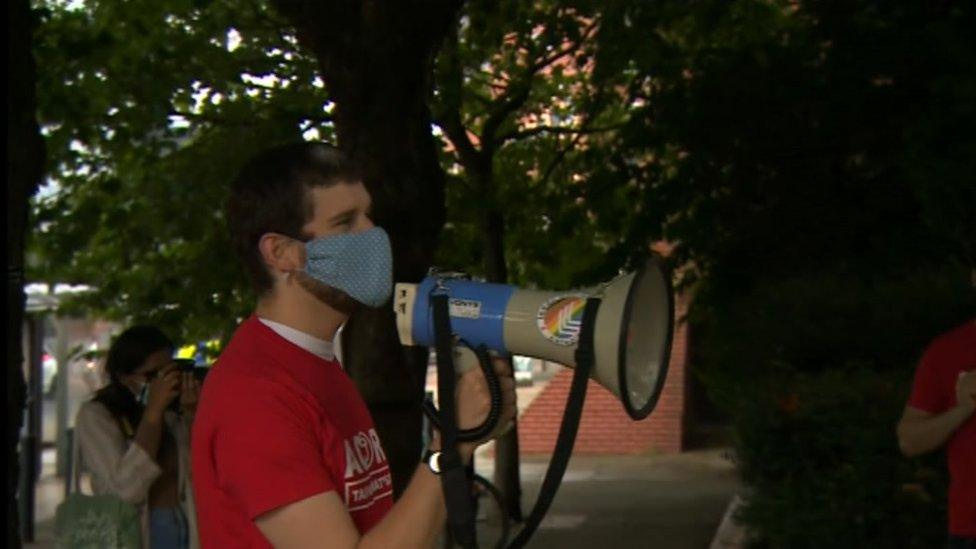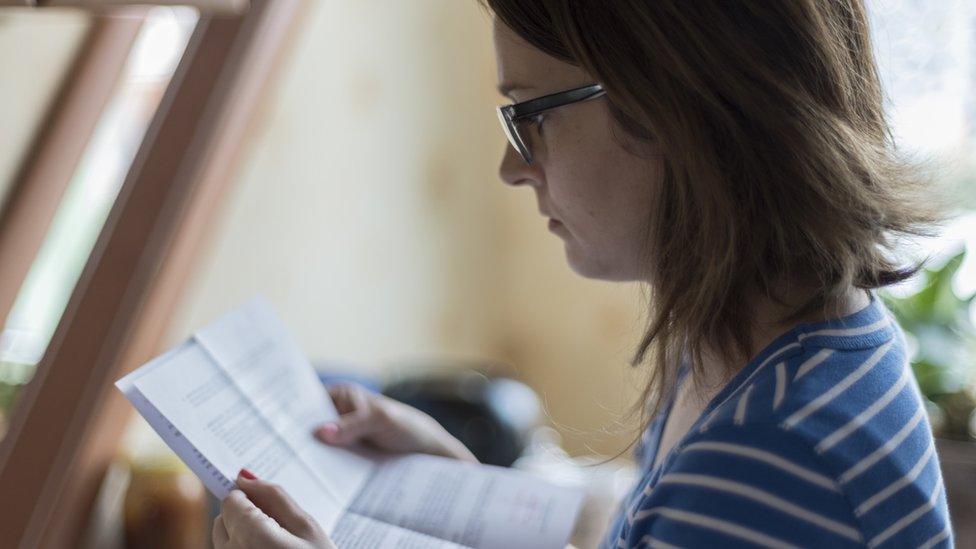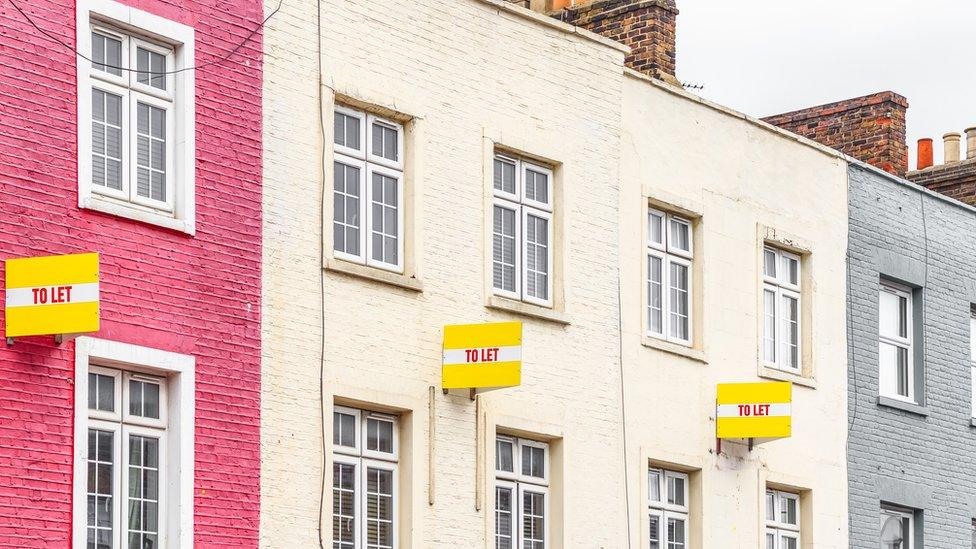Anti-eviction protests after government 'U-turn' on ban
- Published

A small group of people gathered outside the law courts in Leeds as part of Acorn's national protests
Protests have taken place calling for urgent reform after a ban on landlords evicting tenants was extended by four weeks.
The Acorn union said the extension, until 20 September, was "not enough" to prevent people becoming homeless.
There are fears thousands could lose their homes as a result of the coronavirus crisis.
Protestors took to the streets around England and Wales calling for more to be done to protect those who rent.
Members of Acorn, a community union which supports tenants in financial hardship, took part in socially distanced demonstrations in a series of cities.
Sam Rae, of Acorn Leeds, said: "As soon as this extension ends, there'll be a tidal wave of evictions and that will cause a homelessness crisis."
A survey by homelessness charity Shelter suggested that more than 170,000 private tenants have been threatened with eviction by their landlord or letting agent, and 230,000 in England have fallen into arrears since the pandemic started.
Courts had been due to resume cases on Monday after a five-month pause but the delay has now been extended.

Advice for tenants
Anyone under threat of eviction should start gathering evidence such as receipts for rent paid or any communications with your landlord
Landlords have to give you notice before they can apply to court for a possession order. For most tenancy types this notice must now be at least three months in England or six in Wales, but lodgers may get less notice
If a possession order had already been made against you before 27 March 2020, then your landlord may apply for this to be enforced when the ban comes to an end. You should receive 14 days' notice of the eviction date
Anyone now struggling to pay rent should speak to their landlord, and organise a repayment plan to pay off arrears
Those receiving housing benefit or Universal Credit and unable to pay rent might be able to get a discretionary housing payment from the local council
Source: Citizens Advice

Labour leader Sir Keir Starmer said the "11th-hour U-turn" just gave "renters a few more weeks to pack their bags".
Housing Secretary Robert Jenrick said he was "supporting renters over winter" amid the ongoing fallout of the coronavirus outbreak.
He added that, when the ban was lifted, the most serious cases of anti-social behaviour, other crimes, and unpaid rent for over a year would be heard first.

EASY STEPS: How to keep safe
A SIMPLE GUIDE: What are the symptoms?
GETTING READY: How prepared is the UK?
TRIBUTES: The stories of those who died
IN-DEPTH: Coronavirus pandemic

Lawyers and landlords' groups have said that, even after a ban expires, there is little expectation of people who have faced Covid-related financial problems being swiftly told to leave properties.
The National Residential Landlords Association, described the blanket extension as "unacceptable".

Follow BBC Yorkshire on Facebook, external, Twitter, external and Instagram, external. Send your story ideas to yorkslincs.news@bbc.co.uk or send video here.
- Published21 August 2020

- Published28 May 2021
